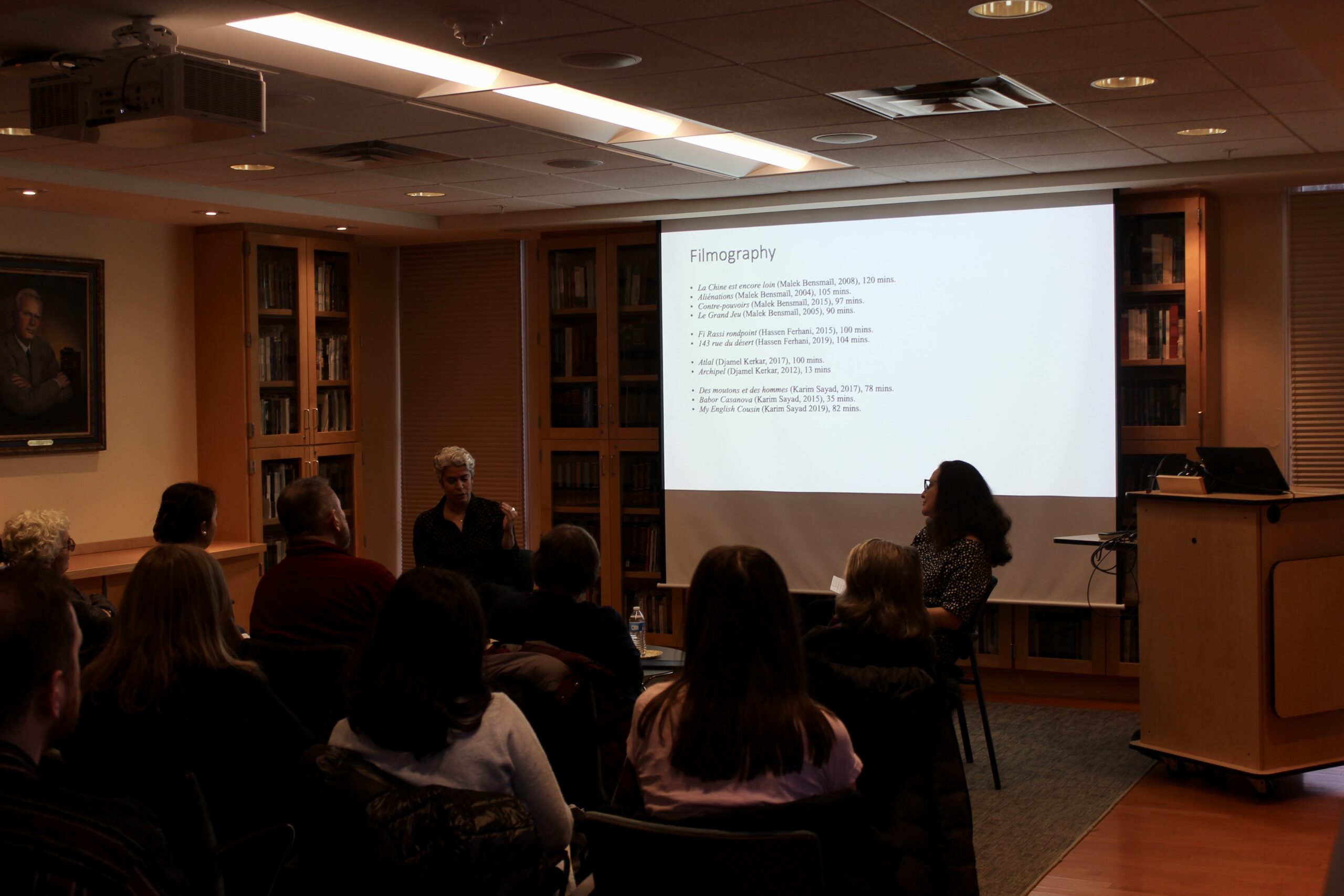From Outlaw to Rebel: Belkaïd launches book on the documentary and Algerian national identity
March 3, 2023
 Carolina Weatherall
Carolina WeatherallHawthorne-Longfellow Library hosted its second faculty book launch of the semester yesterday, featuring Assistant Professor of Romance Languages and Literatures Meryem Belkaïd and her new book, “From Outlaw to Rebel: Oppositional Documentaries in Contemporary Algeria.” Belkaïd was joined by Aviva Briefel, professor of the English language and literature and cinema studies, for a discussion on the book’s key topics.
Belkaïd’s book explores documentaries as a way to imagine Algerian national identity in the shadow of an authoritarian regime. She explained that popular, state-driven narratives of Algeria center on its colonial past, and that she wanted to destabilize this framework through her research.
“Algeria is often mentioned because it’s a former colony of France, and I was just wondering, ‘is it possible to talk about Algeria differently?’” Belkaïd said. “So, that was one of my intuitions…[that] maybe France is not that important in the equation to understand at least some aspects of contemporary Algeria.”
Belkaïd eventually landed on studying documentaries and the people behind them as a way to approach this question. “From Outlaw to Rebel” features four Algerian documentarians and their efforts to challenge popular narratives about the country as a homogeneous product of its colonial past.
“What I have noticed is that after the Algerian Civil War of the of the nineties … the documentary becomes the [way] for many filmmakers to craft a new discourse; an alternative discourse about Algeria—to show things that haven’t been shown before; to show the margins; to show how people speak—all the languages they speak—[to show] what they care about,” Belkaïd said.
Because these filmmakers work under a regime that stymies freedom of expression, the consequences they face for upending the status quo are dire. By challenging state-driven narratives that frame the country as having one spoken language, for example, filmmakers put themselves at risk of being censored and having their projects defunded.
Belkaïd demonstrated this dynamic by describing a conversation she had with Algerian documentarian Malek Bensmaïl.
“[Bensmaïl] said at one point—and it was during an interview that we had—he said, for him, documentary making is a … barometer for democracy,” Belkaïd said. “The easier it is to [put out] a documentary, the closer we are to democracy.”
Malek Bensmaïl is among the four documentarians who Belkaïd features in her book. Each artist gets one chapter, forming the book’s unique structure. Despite suggestions from publishers to make the book centered around thematic elements of Algerian cinema, Belkaïd chose instead to give a direct spotlight to Algerian artists.
“I don’t want to be trapped in themes that maybe are not relevant,” Belkaïd said. “I really wanted to give [a] voice to these filmmakers, and I think if I diluted their work in themes, we don’t see the impact and how thoughtful they are about their aesthetic choice and political choices.”
Film has been an important avenue of expression for Algerians since their fight for independence in the mid-20th century. Because of the country’s numerous spoken languages, the visual element of documentaries and films have provided an accessible way of circulating information. Belkaïd explained this history and its role in lending her book its title.
“When I say from ‘Outlaw to Rebel,’ I mean the Algerian documentary that was born in outlaw was during the Algerian War of Independence—when France considered it an outlaw,” Belkaïd said. “And then the documentary, I think, kept this way of rebelling. I think at one point they stopped rebelling against the colonial past …[and] the target became this authoritarian regime.”

Comments
Before submitting a comment, please review our comment policy. Some key points from the policy: